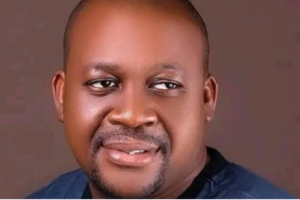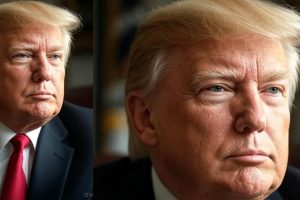
The Peoples Democratic Party (PDP) has criticized President Bola Tinubu for awarding India’s Prime Minister, Narendra Modi, with Nigeria’s prestigious Grand Commander of the Order of the Niger (GCON) honor, the second-highest national distinction in the country.
The opposition party deemed the decision a “misplaced priority,” questioning the criteria behind such a recognition and asserting that it fails to address Nigeria’s current domestic challenges.
Timothy Osadolor, PDP’s Deputy National Youth Leader, voiced the party’s concerns over what he described as an “unnecessary” decision, suggesting that the President’s gesture does not address pressing issues faced by Nigerians. “Awards like this are not meant to be handed out casually or simply in the spirit of diplomatic friendship,” Osadolor stated. “One has to wonder what achievements or contributions the Indian Prime Minister has made directly to Nigeria to merit such an honor. This is our nation’s second-highest accolade, and its conferral should reflect our priorities and values.”
Osadolor went on to reflect on India’s economic transformation, expressing disappointment that the President did not use this interaction to seek insights that could benefit Nigeria. “I would have expected President Tinubu to engage Prime Minister Modi on India’s strategies for lifting millions out of poverty and transforming into a rapidly growing economy. India has shown remarkable advancements, particularly in the tech sector, with Indian leaders heading global companies like Microsoft and steering Silicon Valley’s startups. Such achievements could provide Nigeria with invaluable lessons.”
Continuing, he added, “Rather than extending ceremonial honors, which are of little practical benefit, President Tinubu should have asked Prime Minister Modi for advice on economic growth strategies that could be applied in Nigeria. This would have been far more meaningful than bestowing an award that holds no real value to the Indian Prime Minister beyond photo opportunities and headlines.”
In contrast, Nze Chidi Duru, the Deputy National Organising Secretary of the ruling All Progressives Congress (APC), defended President Tinubu’s decision. Duru argued that the President acted within his authority in awarding the GCON honor to a foreign leader, a move he described as part of Tinubu’s prerogative. According to Duru, the PDP’s critique overlooks the bigger picture of international diplomacy and goodwill.
Duru stated, “The questions we should be asking are whether there is precedent for this kind of award and whether it falls within the President’s legal authority. If the answer to both is yes, then it remains within his discretion to confer such honors as he sees fit.” He further added that the PDP’s stance seemed to reflect “emotional” opposition rather than constructive criticism, urging the opposition to focus on substantial national issues.
“The opposition has every right to scrutinize government actions, but we would prefer that they put forward actionable ideas for improving Nigeria,” Duru remarked. “We should be working on plans to reduce food insecurity, boost business opportunities, and create a fair economic environment, rather than getting caught up in symbolic gestures. These are the real concerns we should be addressing.”
President Tinubu awarded the GCON honor to Prime Minister Modi in Abuja on Sunday, highlighting Nigeria’s strong diplomatic ties with India and recognizing India’s contributions in various global sectors. Following the award, Modi expressed gratitude and pledged to send Nigeria 20 tonnes of relief materials to assist with recovery efforts following recent floods.
“We had very productive discussions that focused on strengthening our strategic partnership,” Modi stated. “There is great potential for further collaboration between our nations, particularly in defense, energy, technology, trade, health, and education. These areas offer opportunities for us to deepen our ties for mutual benefit.”
The PDP, however, maintains that domestic needs should take priority, arguing that more attention should be directed toward addressing the immediate concerns of Nigerians rather than symbolic gestures toward foreign leaders.





